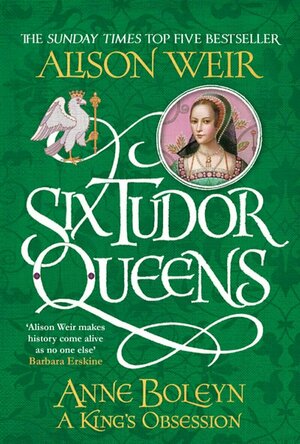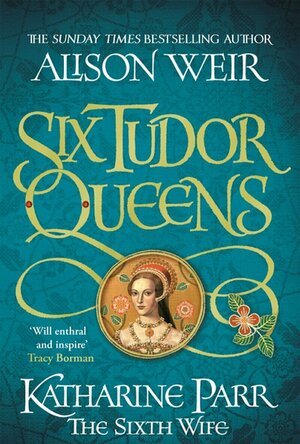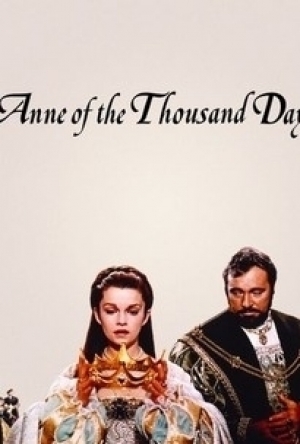
Anne of the Thousand Days (1969)
Movie
Hal B. Walli’s production of “Anne of the Thousand Days” for Universal Pictures recreates from...
Tudors history
ClareR (6081 KP) rated Jane Seymour: The Haunted Queen in Books
May 3, 2018
This novel looks at how she probably wasn't as innocent as we have always been led to believe. In all honesty, she lived at court - a place where family loyalties and wealth were above all else in importance: she couldn't afford to be an innocent.
I like the Jane that Weir portrays. She's resilient and cares deeply about her family and HER Queen (Katherine of Aragon). I really liked this book and all of the courtly intrigues: Tudor England has always fascinated me. It was such a sad end for Jane, and the authors extended notes at the end really explained well what she and some experts thought had really happened to her and why she died (heres a clue: it wasn't childbirth). I will be going back to the first two books in this series to read about Katherine of Aragon and Anne Boleyn in preparation for Katherine Howard (wife #4 - and that should be a good one!!).
Lyndsey Gollogly (2893 KP) rated Anne Boleyn: A Kings Obsession (Six Tudor Queens #2) in Books
Oct 10, 2021
Book
Anne Boleyn:A Kings Obsession (Six Tudor Queens book 2)
By Alison Weir
Once read a review will be written via Smashbomb and link posted in comments
Anne Boleyn: A King's Obsession by bestselling historian Alison Weir, author of Katherine of Aragon: The True Queen, is the second captivating novel in the Six Tudor Queens series. An unforgettable portrait of the ambitious woman whose fate we know all too well, but whose true motivations may surprise you. Essential reading for fans of Philippa Gregory and Elizabeth Chadwick.
'Offers a spellbinding solution to the mystery of Anne's true nature . . . Enthralling' Sarah Gristwood
The young woman who changed the course of history.
Fresh from the palaces of Burgundy and France, Anne draws attention at the English court, embracing the play of courtly love.
But when the King commands, nothing is ever a game.
Anne has a spirit worthy of a crown - and the crown is what she seeks. At any price.
ANNE BOLEYN. The second of Henry's Queens. Her story.
History tells us why she died. This powerful novel shows her as she lived.
I absolutely love how this author writes! I was hooked from the start with this book. Anne Boleyn is one of those women who started with such good intentions but then became all dark and twisted! I have zero sympathy for how her life played out but found her story totally captivating. This is definitely a series worth reading!

Thomas Cromwell: The True Story of 'Wolf Hall'
Book
The Dramatic Rise & Fall of Thomas Cromwell Thomas Cromwell, chief architect of the English...

The White Princess
Book
Plot * when Henry Tudor picks up the crown of England from the mud of Bosworth field, he must marry...
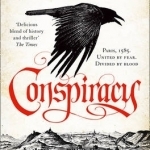
Conspiracy
Book
The No. 1 bestseller - perfect for fans of C.J. Sansom - and the fifth historical thriller featuring...

Fixeur (2016)
Movie Watch
Radu works occasionally as a fixer for European media, dreaming of becoming a journalist. Given the...
international drama thriller
Lottie disney bookworm (1056 KP) rated Six Tudor Queens: Katharine Parr, The Sixth Wife in Books
Mar 23, 2021
To Netgalley and Headline, thank you, thank you, thank you!
It is my opinion that Katharine Parr is often the most overlooked of Henry VIII's wives: indeed most novels focus only on her life after becoming Queen. That is why this novel from Alison Weir was simply brilliant.
Weir introduces us to Katharine Parr as a girl, constantly surrounded by family and, after losing her father at a young age, being brought up by her uncle, aunt and her mother who was an attendant to Queen Katharine of Aragon.
The reader instantly falls in love with Katharine, an intelligent, caring child who is acutely aware of her eventual duty to her family but desperately wishes to remain in her carefree days with her siblings.
As we know, Tudor girls married young and Weir explores each of Katharine's four marriages in great detail: combining historical fact and storytelling in the way that only she can.
It struck me that, in three of Katharine's four marriages, she was used as a pawn, marrying for rank, power and connections as was the norm at the time.
However, in every one of these marriages Katharine was able to find love; even when marrying an old overweight Henry, already famous for disposing of numerous wives.
The writing during each of these marriages is rarely emotional: Katharine is a very rational and practical character, only showing real passion for religion. She is even super calm when she believes she is being investigated as a heretic!
It isn't until Katharine's fourth and final marriage that she marries for herself and for love. The passionate relationship between Katharine and Tom Seymour seeps into the writing at this point: introducing jealousy and anger where there has previously been merely a stoic resolve.
The fact that this novel spans the lifespan of Henry's marriages is fitting and really allows Weir to paint a picture of Tudor society throughout the religious reforms and upheavals associated with its monarch.
No one who has read Alison Weir's books before will be surprised that this is yet another success. Together with Philippa Gregory, Weir is a Queen of historical fiction and this novel is only the latest jewel in her crown.

iSpeak English: Interactive conversation course - learn to speak with vocabulary audio lessons, intensive grammar exercises and test quizzes
Education and Travel
App
Do you want to speak English with a beautiful native accent? ▶ Use "iSpeak English" and native...
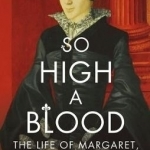
So High a Blood: The Life of Margaret, Countess of Lennox
Book
'Who hopes still constantly with patience shall obtain victory in their claim' Sometime heir to the...

